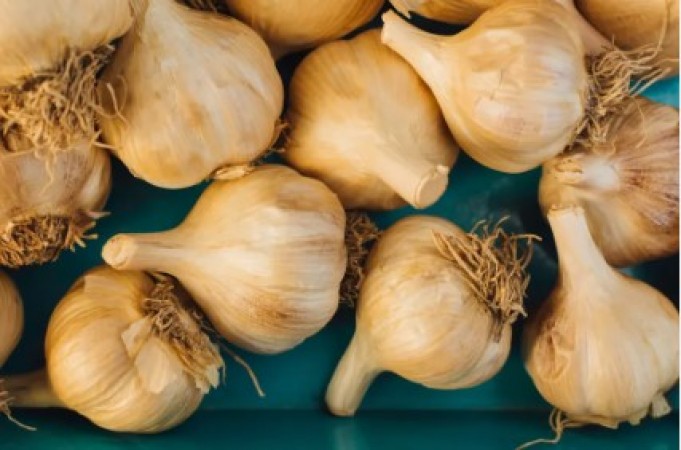
Garlic, with its unmistakable aroma and flavor, has been a staple in kitchens worldwide for centuries. Beyond its culinary appeal, garlic has earned a reputation for its potential health benefits. From boosting the immune system to promoting heart health, garlic is celebrated for its medicinal properties. However, like many things in life, too much of a good thing can have negative consequences. In this comprehensive guide, we'll delve into the multifaceted world of garlic, examining its benefits, risks, and the optimal amount to consume for overall well-being.
At the heart of garlic's health-promoting properties lies its rich array of antioxidants. These powerful compounds, including allicin, diallyl disulfide, and S-allyl cysteine, help neutralize harmful free radicals in the body, thereby reducing oxidative stress and inflammation. By safeguarding cells from damage, garlic may play a crucial role in preventing chronic diseases such as cancer, diabetes, and cardiovascular disorders.
Garlic has long been revered for its immune-boosting prowess. Packed with vitamins, minerals, and sulfur-containing compounds, garlic helps bolster the body's natural defense mechanisms. Research indicates that regular garlic consumption may enhance immune function, reducing the risk of infections and aiding in the management of autoimmune conditions. Moreover, the antimicrobial properties of garlic make it a formidable opponent against pathogens, including bacteria, viruses, fungi, and parasites.
Among its many accolades, garlic shines brightest in the realm of heart health. Studies suggest that garlic supplementation may help lower cholesterol levels, decrease blood pressure, and improve circulation. These cardiovascular benefits stem from garlic's ability to relax blood vessels, prevent blood clots, and reduce inflammation within the cardiovascular system. By incorporating garlic into your diet, you may mitigate the risk of developing heart disease and stroke, two leading causes of mortality worldwide.
Chronic inflammation lies at the root of numerous health ailments, from arthritis to Alzheimer's disease. Fortunately, garlic serves as a natural antidote to inflammation, thanks to its unique blend of bioactive compounds. Allicin, in particular, exhibits potent anti-inflammatory properties, helping alleviate pain, swelling, and stiffness associated with inflammatory conditions. By integrating garlic into your meals, you can embark on a journey towards greater comfort and mobility, free from the shackles of chronic inflammation.
While garlic may invigorate the palate, excessive consumption can wreak havoc on the digestive system. Raw garlic, in particular, contains fructans and oligosaccharides, fermentable carbohydrates that can trigger bloating, gas, and diarrhea in sensitive individuals. To sidestep digestive woes, it's advisable to moderate your garlic intake and opt for cooked or aged garlic preparations, which are gentler on the stomach.
The lingering scent of garlic on one's breath and skin is a testament to its potent medicinal properties. However, for some, this olfactory signature can be a source of social discomfort. Garlic contains sulfur compounds that impart its characteristic aroma while simultaneously exuding from the pores, leading to malodorous breath and body odor. To mitigate these effects, consider chewing on parsley or mint leaves after consuming garlic or incorporating chlorophyll-rich foods into your diet.
Garlic's blood-thinning properties, while beneficial for cardiovascular health, pose a potential risk for individuals prone to bleeding disorders or taking anticoagulant medications. By inhibiting platelet aggregation and promoting blood flow, garlic may exacerbate bleeding tendencies, increasing the likelihood of bruising, nosebleeds, or excessive bleeding during surgery. To ensure safe and optimal garlic consumption, consult with a healthcare professional, especially if you're on blood-thinning medications or have a history of bleeding disorders.
Direct contact with raw garlic can lead to skin irritation, redness, and even chemical burns, particularly in individuals with sensitive skin. Allicin, the primary bioactive compound in garlic, possesses antimicrobial properties that can irritate and inflame the skin upon prolonged exposure. To prevent skin irritation, exercise caution when handling raw garlic and consider wearing gloves or using a barrier cream to protect your skin.
While the allure of garlic may tempt you to indulge liberally, moderation remains the golden rule. For most individuals, consuming 1-2 cloves of garlic per day, whether raw, cooked, or in supplemental form, strikes the ideal balance between reaping its health benefits and avoiding unwanted side effects.
Factors such as age, health status, medication use, and personal tolerance levels should inform your garlic consumption habits. If you're new to garlic or have pre-existing health conditions, start with a conservative amount and gradually increase as tolerated. Conversely, if you experience adverse effects, such as gastrointestinal discomfort or allergic reactions, scale back your garlic intake accordingly.
For individuals with underlying health concerns or those taking medications, seeking guidance from a healthcare professional is paramount. Your doctor or registered dietitian can offer personalized recommendations based on your medical history and nutritional needs, ensuring that garlic complements rather than compromises your overall health regimen.
In conclusion, garlic stands as a potent ally in the pursuit of optimal health, offering a myriad of benefits ranging from immune support to cardiovascular protection. By embracing garlic in moderation and heeding caution against overindulgence, you can harness its therapeutic potential while safeguarding against potential risks. So go ahead, spice up your meals with a dash of garlic, and savor the flavor of vitality and well-being it brings to your life.
Know what to do to avoid heart blockage, when to go to the doctor
These Foods Help Reduce the risk of cancer, Add Them Into Your Daily Diet
PM Modi Set to Inaugurate Six New AIIMS Facilities Across India